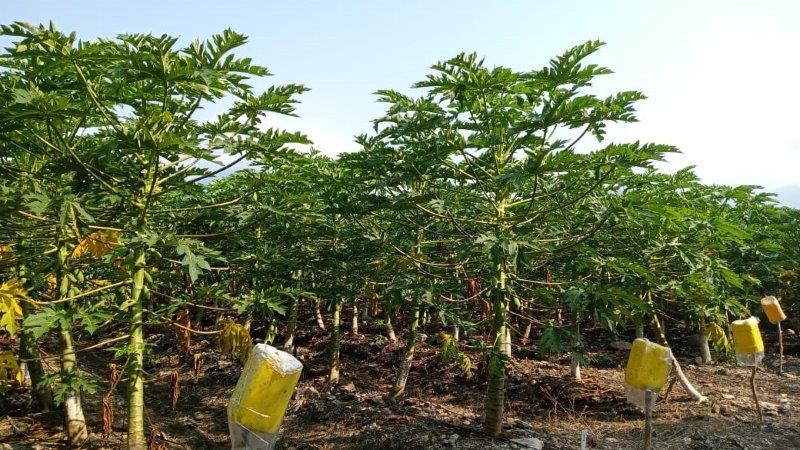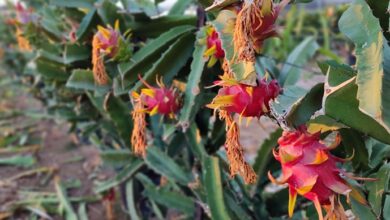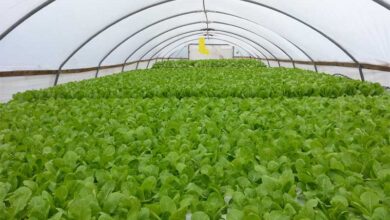Growing Papaya in Mexico – Challenges and Smart Solutions for Rising Demand
Papaya Production in Mexico: Smarter, Higher-Yield Farming

An Interview with Fco. Javier Angulo Rendón*, an agronomist consultant and irrigation advisor from Tefen Flow & Dosing Technologies Ltd
Mexico is the world’s largest producer of papaya, primarily in the regions of Oaxaca, Veracruz, and Colima. We interviewed Fco. Javier Angulo Rendón, an agronomist consultant and irrigation advisor specializing in sustainability, regenerative agriculture, and long-term soil health. Javier is deeply familiar with the daily realities and challenges faced by Mexican growers, offering a unique perspective on the obstacles confronting papaya producers and the technological innovations helping them meet the growing global demand.
Expanding Production to Meet Export Demand
According to Javier, over the past four years, there has been a focused effort to expand papaya cultivation and increase productivity. Mexico currently produces around one million tons of papaya annually, with about 46% of this production destined for export mainly to the United States, Germany, the Netherlands, and Brazil.
“In the past, local farmers grew papaya mostly for the domestic market,” Javier explains. “But as international demand increases, producers need to significantly scale up their operations to meet export needs.”
Last year, total production for export reached 460,000 tons. In earlier years, progress was gradual, mainly due to genetic improvements. However, the recent surge in demand now requires a far more substantial boost in both yield, Quality, and efficiency. Javier emphasizes that achieving this is only possible through the adoption of advanced technology.
Facts About the Tree, the Growing Process, and the Fruit
The most popular papaya varieties in Mexico are Maradol and Rose Lady, Passion Red, Paulina f1, and Tainung Star f1, with several intermediate types between them. These varieties differ mainly in flavor, shape, and color.
The Maradol variety is the most widespread due to its flavor and its ability to have a longer shelf life, and thanks to genetic engineering, its smell and taste have been improved.
“Many growers already produce around 50 tons per hectare,” says Javier. “Now they’re aiming higher to reach 100 to 120 tons per hectare.”

With Tefen’s technology, that ambitious goal is becoming achievable
MixRite – Tefen’s Technological Solution for Papaya Growers
To understand the benefits of Tefen’s MixRite dosing systems, it’s important to consider the main objectives of papaya growers:
– Increase the number of trees per hectare
– Ensure precise and efficient application of water and fertilizer to each tree
Fertilizer represents one of the highest costs in papaya production, and many growers struggle to balance the correct dosage with the planting density. Tefen’s MixRite system solves this problem by ensuring precise and uniform fertilizer distribution throughout the entire plant, not just at the roots.
“MixRite doses the fertilizer or agrochemical directly into the irrigation flow, ensuring it reaches all parts of the plant,” explains Javier. “In field demonstrations, we can observe the uniformity with which MixRite distributes the fertilizer, resulting in uniform fruit set, no fruit drop, and vigorous plants.”
The main advantages of MixRite for papaya growers include:
• It does not require an external power source; MixRite operates solely on water pressure.
• Easy installation, operation, and maintenance.
• Proven results in the field: increased flowering, more fruit, and stronger plants.
In many regions, water sources are located far from the fields, which can lead to system failures and limited control over irrigation and fertilization. MixRite offers a simple, decentralized solution that can be installed near the plants, in each irrigation section, and requires no electricity—only natural water pressure.
Visible results in the field
“The results speak for themselves,” says Javier. “When we compare areas with and without MixRite, the difference is clear. The trees where MixRite is used are stronger and retain more flowers because they experience less stress from irregular fertilization.”
MixRite provides consistent and balanced nutrition, helping plants stay healthy and free from the stress caused by fluctuations in electrical conductivity and pH during fertilization, resulting in increased productivity.
Key Benefits of more precise fertilization with MixRite:
– Less flower drop
– Higher fruit yield
– Improved fruit quality and longer shelf life
– Stronger, healthier plants
– Reduced need for pesticides to control diseases, due to the plant’s vigor
Because papaya grows in tropical regions with high humidity, it is prone to fungal diseases and other infections. Climate change and extreme weather events, such as hurricanes and torrential rains, make spraying, both on the ground and from the air, even more difficult.
“With MixRite, the plants are stronger and less vulnerable to disease,” explains Javier. “This means fewer pesticides are needed. The denser foliage also provides better shade, which helps extend the fruit’s post-harvest life.”
Growing Success
Today, an increasing number of growers are adopting MixRite and sharing their success stories. The news is spreading rapidly among papaya growers, who are eager to adopt this simple, effective, and sustainable technology.
Undoubtedly, its potential is enormous. Tefen’s MixRite dosing systems represent an innovative solution that can transform papaya farming in Mexico, helping farmers increase yields, improve fruit quality, and meet growing global demand profitably and sustainably.

* To consult with Javier, you can contact him via LinkedIn: https://www.linkedin.com/in/fco-javier-angulo-rend%C3%B3n-7795a61a/
For inquiries regarding Tefen’s MixRite dosing pumps, please contact: https://tefentech.com/contact-us




